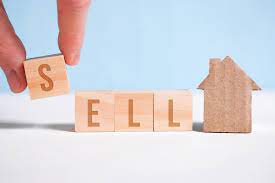A Guide To Selling Your Home
What you need to know, and the steps you need to take, to make selling your home as easy and stress-free as possible.
Selling your home can feel like a daunting challenge. With so much to think about, it can be difficult to know where to start; however, following these steps can alleviate much of the stress and enable you to focus on the future with confidence.
Get Your Home Sale-Ready
Even before you call in the estate agents, examine your home critically. Are there any outstanding repairs, botched DIY jobs or shabby paintwork? Dealing with these can affect the valuation you receive and ultimately any offers from prospective purchasers.
Valuations
While you may have a figure in mind, it is usually best to assess this against valuations from estate agents with appropriate local knowledge. Most people ask three separate agencies for a valuation before selling their home.
Instruct An Agent
Most vendors still instruct an estate agent to market their home. It is possible to do the job yourself; however, this can be time-consuming. The choice of estate agency is personal but often comes down to suggested valuations and experience in selling similar properties.
Set A Sale Price
Vendors who instruct an agent often decide to adopt the agency’s valuation as the sale price, but this is not a pre-requisite. The key point to remember is that the vendor decides the sale price. Although it is usual to take an average of the valuations received as the sale price, someone looking for a quick sale might go with a lower figure; equally, anyone unwilling or unable to go below a specific figure may select a higher amount. Whatever price is set, it is wise to take stamp duty bands into account.
Stage Your Home For Sale
Assuming you have dealt with any necessary repairs and decorating, this means presenting your home as attractively as possible to appeal to your target buyers. Decluttering is very important, as you do not want potential buyers imagining that storage is a problem in the house. This includes fitted cupboards, as buyers may open them to check for storage space. Removing personal photographs and replacing them with neutral pictures is also a good idea, as some buyers struggle to imagine themselves living in a property if it still seems very much somebody else’s home. A thorough cleaning of the entire home will help it to look its best in photographs and for viewings. Finally, think about the property’s kerb appeal - hanging baskets, planters filled with blooming flowers, polished door hardware and tidily-arranged curtains or blinds can all help.
Choose A Legal Practitioner
The transfer of a property from buyer to seller, which is called the conveyance, requires specialist knowledge. Both buyer and seller need their own solicitor or licensed conveyancer. As a seller, it is important to line up your legal expert even if you are not planning to buy another property. Once you accept an offer on the property - and this can happen sooner than anticipated - you instruct your solicitor or licensed conveyancer.
Viewings
Some estate agents will handle the viewings on behalf of vendors, while others will expect vendors to show potential buyers around the property. It is important to be clear what the protocol is with your estate agent. Some agents may launch a property onto the market with an ‘open house’. Typically held at the weekend after a period of online marketing to generate interest, this can be an excellent way of snagging lots of potential buyers and even generating competition for the property.
The Offer
Vendors whose property is launched via an open house may find themselves in the fortunate position of receiving one or more offers very soon afterwards. If more than one offer is received, the estate agent may recommend going to ‘best and final offers’, whereby interested parties are asked to provide written notification of the maximum they are prepared to pay for the property. It is not always the case that a vendor chooses the highest offer - factors such as whether someone is a cash buyer, is in a long chain, is proceedable because they have already accepted an offer on a property they need to sell or has a mortgage already in place can be relevant. A vendor who receives a single offer does not have such a weighing up process to go through, but may still choose to reject an offer in the hope of receiving a higher one or because a buyer is not yet proceedable. A good estate agent may be able to convince a buyer to raise a lower-than-ideal offer.
Consider Removing The Property From The Market
Once you have accepted an offer, the buyer may ask you to take the property off the market. If you agree - and there is no obligation to do so under the English legal system - the estate agent will no longer actively market it or arrange further viewings; however, they are legally obliged to pass on any new offers.
Negotiations
Fixtures and fittings listed in the property’s particulars are included in the sale price. As the vendor, you can decide which other items you are willing to include, either at no extra cost or for payment of an additional sum. Once the buyer has conducted their survey of the property, you may also have to decide whether you are willing to accept a discounted sale price in light of any major works or issues highlighted. There is no obligation to do so; however, intransigence may cost you the sale.
Questionnaires
Your solicitor will send you questionnaires received from the buyer’s legal adviser, which you must answer to the best of your ability. The questions concern matters such as the property’s boundaries, any disputes with the neighbours, and fixtures and fittings.
Exchange
This is the point at which the transaction becomes legally binding. The final contracts have been drawn up and are now ‘exchanged’. Pulling out now incurs heavy financial penalties.
Completion
Completion is when the property legally changes ownership. Although exchange and completion can occur on the same day, it is usual to allow at least a week to elapse between the two events. This allows both parties to do any necessary packing and organise removals.
Mortgage Redemption
Once you have received the buyer’s funds, your solicitor can use them to pay off any outstanding mortgage on the property.
Legal Fees
The final step in selling your home is paying your solicitor their fees.






